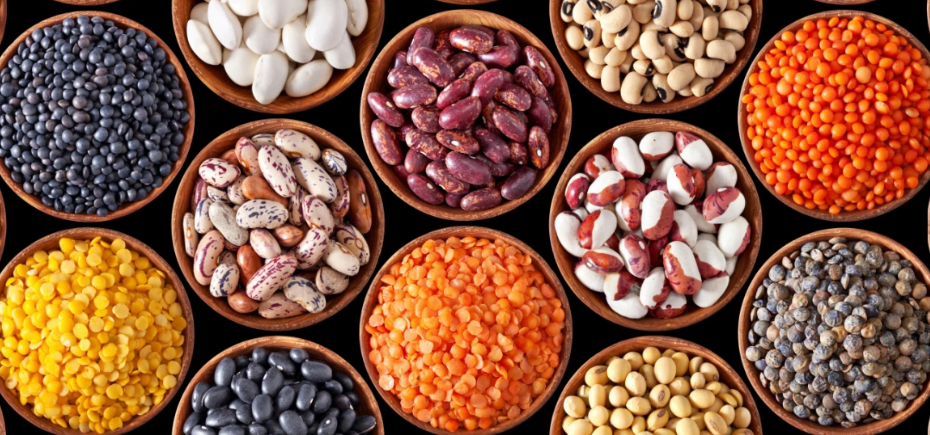
(Photo : PIB)
Legumes and Nuts: The Heart-Healthy Protein Choice
- A Harvard study found that consuming more plant-based protein can reduce the risk of cardiovascular disease.
- The study used 30 years of data and found a 19% lower risk of CVD and 27% lower risk of CHD with higher plant to animal protein ratio.
- The lead author suggests a ratio of at least 1:2 plant-to-animal protein is effective in preventing CVD.
- The study also highlighted the environmental benefits of a plant-based diet, but cautioned against ultra-processed plant-based foods.
A groundbreaking study led by researchers at Harvard T.H. Chan School of Public Health has revealed that consuming more plant-based protein than animal-based protein could significantly reduce the risk of cardiovascular disease (CVD) and coronary heart disease (CHD). The study, published in the American Journal of Clinical Nutrition, suggests that the risk reductions are likely driven by the replacement of red and processed meats with plant proteins, particularly legumes and nuts.
The research team used 30 years of data on diet, lifestyle, and heart health among nearly 203,000 men and women. Over the four-year study period, 16,118 CVD cases, including over 10,000 CHD cases and over 6,000 stroke cases, were documented. The results showed that people who consumed a higher ratio of plant to animal protein (about 1:1.3) had a 19 per cent lower risk of CVD and a 27 per cent lower risk of CHD.
Plant-Based Diet and Heart Health
The study also found that people who had their 21 per cent of energy coming from proteins and adhered to a higher plant-to-animal protein ratio saw a 28 per cent lower risk of CVD and a 36 per cent lower risk of CHD. According to the researchers, replacing processed meat with several plant protein sources, particularly nuts and legumes, can improve blood lipids and blood pressure as well as inflammatory biomarkers.
The study's lead author, Andrea Glenn, Assistant Professor in the Department of Nutrition and Food Studies at New York University, stated, The average American eats a 1:3 plant-to-animal protein ratio. Our findings suggest a ratio of at least 1:2 is much more effective in preventing CVD. To prevent CHD, a ratio of 1:1.3 or higher should come from plants, Glenn added.
Environmental Impact and Quality of Plant-Based Foods
The researchers also highlighted the environmental benefits of a plant-based diet. They noted that such a dietary pattern is beneficial not just for human health but also the health of our planet. This aligns with the growing body of evidence suggesting that plant-based diets are more sustainable and have a lower environmental impact than diets rich in animal products.
However, it's important to note that not all plant-based foods are created equal. Some studies have raised concerns about the health impacts of ultra-processed plant-based foods. For instance, a study found that plant-based meat alternatives, despite being technically plant-based, may not necessarily be healthier options due to their high sodium content and classification as ultra-processed foods.
Moreover, while plant-based diets are generally associated with health benefits, it's crucial to consider the quality of the diet. A diet rich in whole plant foods, such as fruits, vegetables, whole grains, legumes, nuts, and seeds, is likely to provide more health benefits than a diet high in processed plant foods.
* This is a contributed article and this content does not necessarily represent the views of btin.co.in









